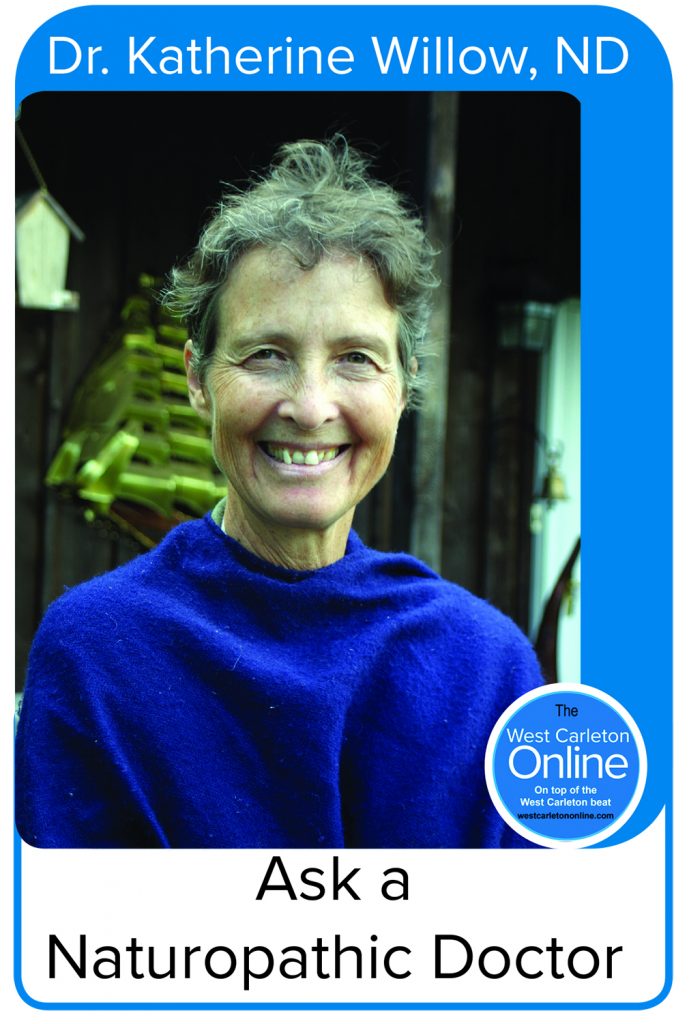Willow: Garlic discoveries…
For this year’s Garlic Fest at the Carp Farmer’s Market I was asked to give a talk on the medicinal benefits of this smelly bulb. What I discovered in my research bears sharing.

My first review of garlic studies confirmed what I had learned previously: the key active ingredient was supposedly allicin, only activated through crushing the cloves, either in a garlic press or by chewing. The conclusion I had always heard was that it was selectively useful in the raw state, either fresh or aged.
The benefits are legendary and require a high daily dose over weeks and months for results. The suggested moderate dose for general use is one two two cloves/day. Research shows promise in the following areas:
- Anti-bacterial, viral and fungal
- Boosts athletic performance
- Detoxifies heavy metals
- Regulates blood sugar
- Decreases blood pressure and cholesterol
- Helps with weight loss (a new one on me)
- Promotes hair growth
- Anti-cancer activity
However, garlic is not good for everyone. People with ulcers, gastrointestinal irritations and using certain medications: blood thinners, non-steroidal anti-inflammatory drugs, cyclosporine, birth control pills and insulin should not take large amounts of it.
Also, serious meditators be warned that it stimulates the mind and is therefore often restricted during meditation retreats.
In my practice I use the concept of Ayurvedic body types, which recommends food and lifestyle tips for each type. During the talk I mentioned this and then was asked to test various participants for their tolerance to garlic with a muscle test that I often use to decide which brand of supplement to use. Amazingly, they tested totally in line with the Ayurvedic theory: thinner people didn’t test well for it while sturdy people did! It was certainly an eye-opener for me and an affirmation that this 5,000-year-old medical system is still relevant.
When looking up the best antidotes to garlic breath, I was surprised to find a solid study that showed not parsley but raw apples, lettuce and mint to be the top picks. This was verified by measuring the amount of garlic chemicals in people’s breath after eating raw garlic and then eating various other foods to combat the odour.
Finally, in a last-minute review of some new research, I found a website dedicated to garlic studies showing that allicin ISN’T the active ingredient. In fact, when pure allicin is introduced into blood, it turns it black and unable to transport oxygen. There are even cases of anemia in people who ate an excess of raw garlic. So, it seems allicin is not the primary compound and that several others seem to be the beneficial ingredients (I’ll spare you the complicated chemical formulas). The practical conclusion is that garlic is still useful when cooked and pickled. In fact, for the people who are more sensitive to garlic, they would do well to eat it cooked to avoid digestive irritation.
Hope that’s useful and feel free to ask any questions on the subject through West Carleton Online.
In health, Katherine.











